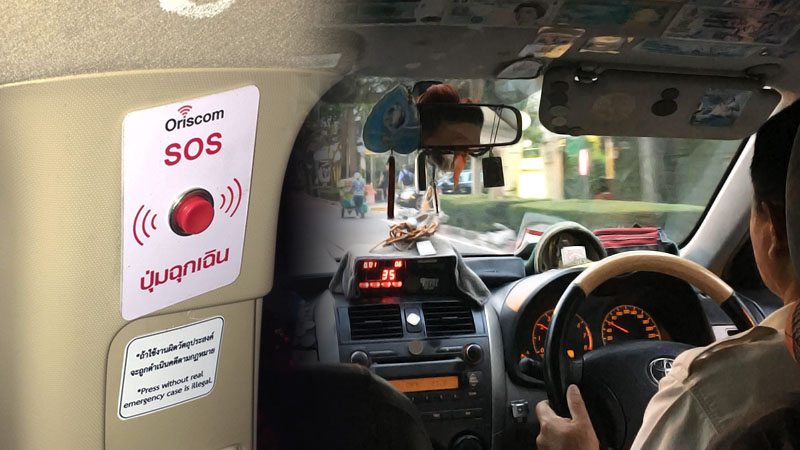Bangkok is rife with tales of taxi drivers that drive passengers crazy rather than safely to their destinations.
Everyone has a story about a cabbie from hell. Whether they are molesting, raping, or threatening riders; masturbating, overcharging, or refusing passengers; being salty, racist, or enforcing weird rules in their cabs — their antics are a perennial hot topic of conversation.
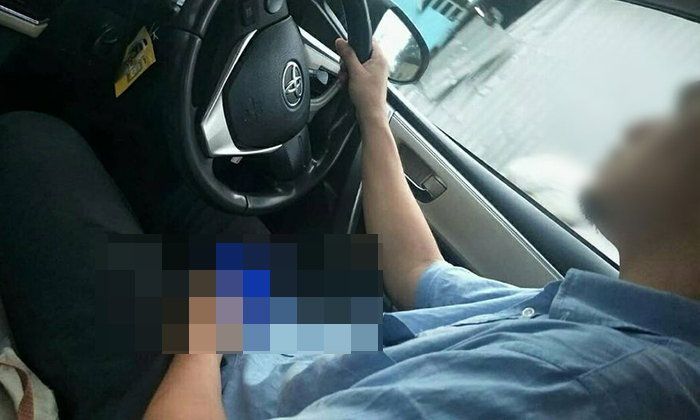
Taxi companies and their governing bodies must have realized this because, as of now, approximately 2,000 — of a total 80,000 cabs operating in Bangkok — have been equipped with panic buttons in the back seats so passengers can report dastardly drivers as soon as they start acting up.
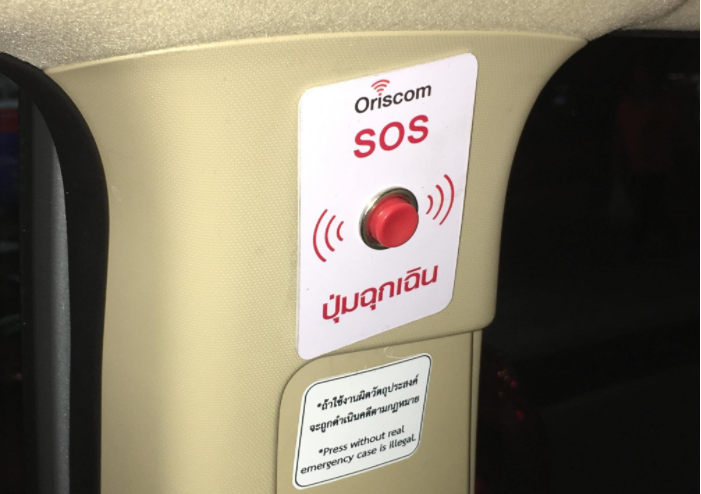
New legislation requires that all taxis have this equipment, but don’t expect to see an immediate change. It will happen over nine years because, as the vehicle registrations expire, which they do every near-decade, it will be a renewal requirement for taxis to be outfitted with these systems.
While soliciting stories about the city’s bad cabbies, we heard firsthand accounts of drivers threatening passengers with guns, covering their badges so they can’t be reported, robbing their riders, hitting on them, groping them, falling asleep at the wheel, and more.
On taxi experiences in Bangkok, Sarah Martin said, “Where to start? I had a cabbie high on yaba zooming down the wrong side of Petchaburi Road at 2am, toenail clipping in the cab, and one guy who told me that Indians didn’t tip, and how one tried to choke him so he punched him in the face saying ‘Muay Thai motherfucker, welcome to Thailand’ (I tipped after that ride).”
Tanya Perdikou had one memorably bad experience as well. “Once, a driver picked me up at Suvarnabhumi Airport around midnight. First, he tried to turn off the meter and charge me 500 baht as we pulled onto the slip road. Then he pulled over really abruptly, got out, and had the longest piss known to man. I got freaked out about what he was doing so I turned around to look and he was staring back into the car with his dick in his hands. But definitely pissing, thank God. His final trick was to miss a slip road and reverse along the freaking highway to get back to it. Oh, and he yelled at me because I had no English banknotes for him to pin to the ceiling of his cab. I have never felt so relieved when a journey was over.”
Experiences like these are hardly uncommon in Bangkok and provide evidence as to why the panic buttons are needed and why Grab and Uber — services that allow you to rate and review your driver — have gained steam so quickly and taken profits from traditional cab companies.
To be fair, there are also plenty of pleasant taxi drivers in the city. It’s not that surprising that some are less than polite since they work a notoriously underpaid job with long hours. Taxi pay rates, which are set by the city, are very low.
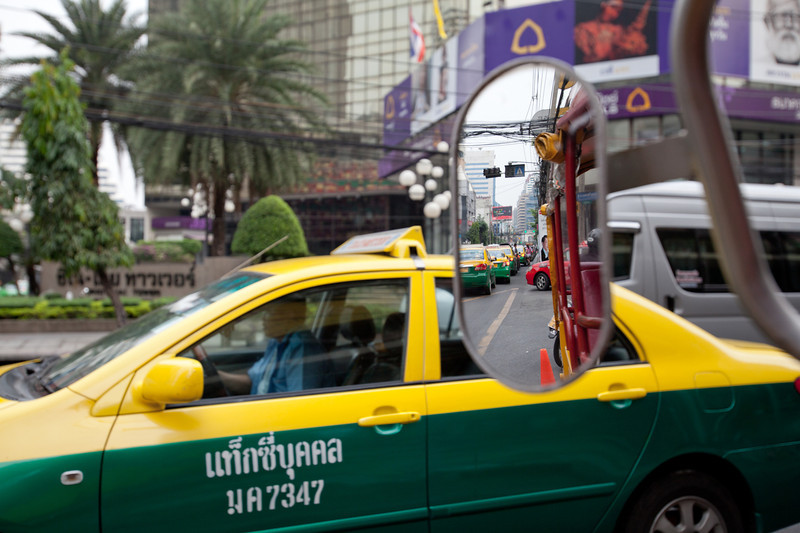
The new panic buttons connect riders directly to the Department of Land Transport (DLT), who decide if the case needs to be patched through to the police or they can handle it themselves. The panic buttons also provide GPS location, the driver’s license information, and 360 degree cameras, according to one proud driver who has the button in his cab.
Not everyone is happy about the change though.
Taxi Driver Association President Woraphol Gaemkhuntod has been a driver for 21 years and his association boasts 300 members. He is against the new security systems, citing the cost for drivers — about THB35,000 (US$1,123) to install the system — and saying the systems are unnecessary. He claims that some of his drivers make just THB3,000 per month. For comparison, the basic salary of a full-time shop employee would be about THB6,000.
His group filed a complaint in November about the new equipment requirement with the DLT’s Administrative Court. The association’s lawyer is preparing their case.
As far as how to deal with bad cabbies, Woraphol had a more ethereal suggestion than GPS tracking. “I don’t think the emergency button will help. Equipment doesn’t last, unlike the human conscience. We have to develop our conscience first.”
As for Uber, he sees it as a fad. “I think Thai people want to try new things, and they think Uber is more chic to travel in. But Uber is like a wife. People get bored of their wife and want a new one.”
Oriscom is one of the larger companies installing these systems. We spoke to their technical manager, Sitthikorn, who declined to give his last name, but explained that Oriscom’s equipment is DLT approved and is installed in cabs as they roll off the assembly line at the factory.
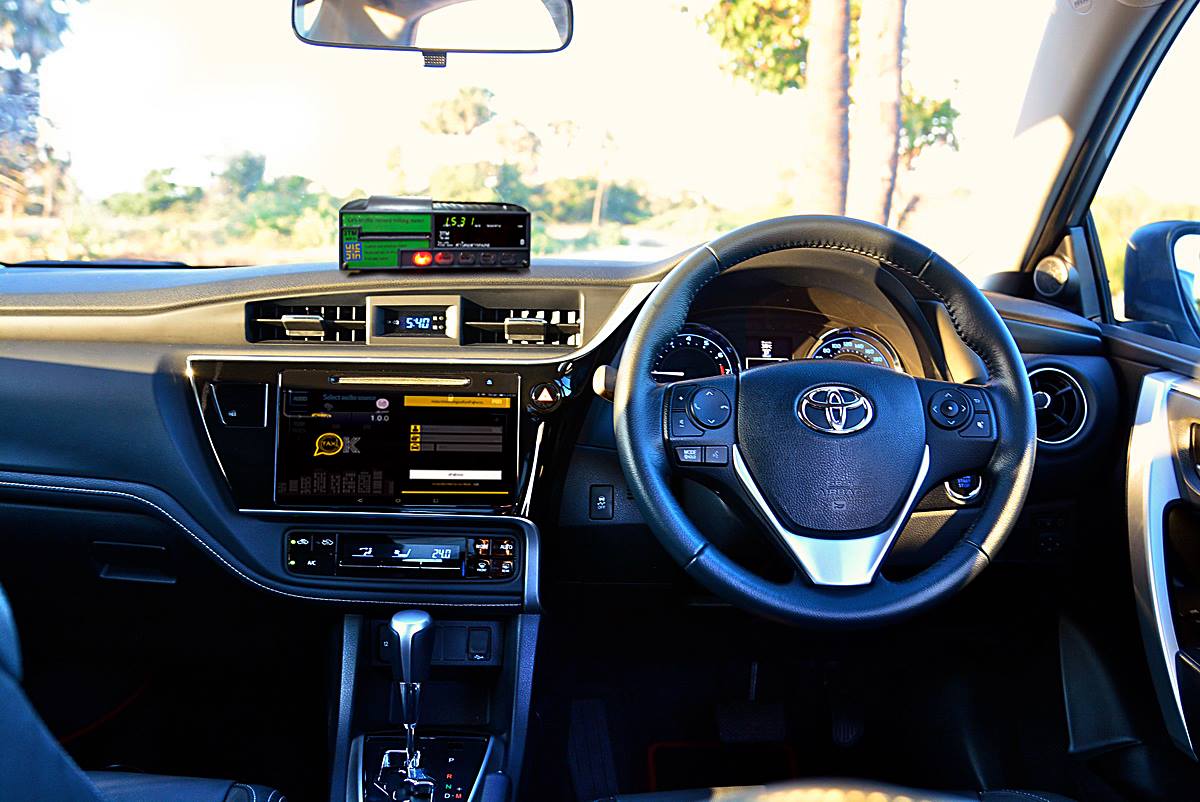
When asked if the buttons are due to Bangkok taxi drivers’ reputation for poor service, he said, “I think that’s part of it. The panic button is useful when there’s a quarrel between drivers and passengers.”
Sitthikorn explained that, in the past, taxi drivers had to be in radio communication with the DLT while on duty. The GPS system will replace that radio system.
Simple radio communication between drivers and the DLT did not offer much comfort to passengers, since the system did not offer a way for riders to interact with the DLT. It also offered no hard evidence of anything that happened in the vehicles.
Coconuts reader Erin Burney recently spotted the panic button in a cab, snapped us a photo, and asked her driver a few questions about it.
According to him, the buttons will be life-changing for Bangkok taxi drivers and their passengers.
He told Burney that, once the equipment is installed, the driver has to scan his license to start the car, thus proving that he was driving if incidents occur. If there are questions about whether someone else may have gotten hold of the designated driver’s license, there is a camera inside the cab that creates a record of everything that happened.
This Bangkok driver was pleased to have the button because he said it will keep his passengers safe. However, we imagine, if you are one of the good taxi drivers in Bangkok, a camera in the cab will also protect you if a passenger wrongly accuses you of something.
For now, the chances of jumping into a Bangkok cab that has a panic button hovers around 2.5 percent, but that number should steadily rise as new cabs are put on the road and older cabs are due for registration renewal.
Additional reporting by Prae Sakaowan
